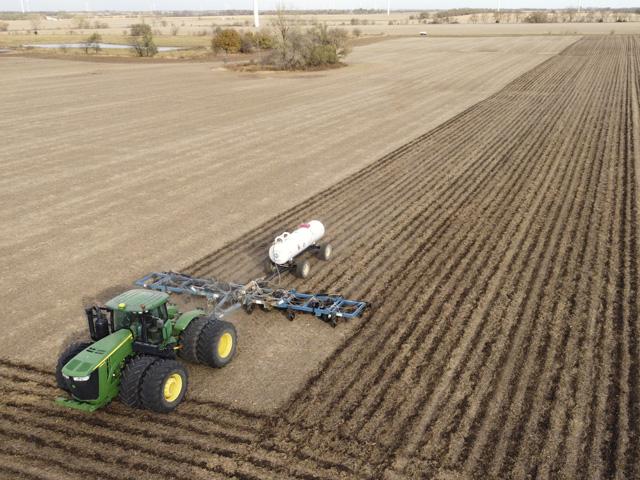
As many across the United States prepare to sit down to a Thanksgiving feast, there are those who will go without. Donating venison can help make a difference.
Oil futures ended broadly higher Friday, Feb. 6, reversing the previous day's tumble on continued volatility over risks related to Iran.

Recent Sales Results From Adams County, Indiana; and Adams County, Illinois; Decatur County, Kansas; Frontier County, Nebraska

Lotion fresh from the dairy farm can help show your softer side this Valentine's Day.
P[] D[0x0] M[0x0] OOP[F] ADUNIT[] T[]
DTN Crops Editor Jason Jenkins began his journalism career full time in 2000. While his repertoire of communications tools has evolved and expanded through the years, one passion has remained constant: telling stories that connect with an audience.
Jenkins grew up on a small family farm in northwest Illinois. He attended the University of Missouri where he earned a bachelor's degree in agricultural journalism. Prior to joining the DTN team, Jenkins and his wife, Allison, founded Mill Creek Communications Services, a custom multimedia content business, in 2016. Jenkins also previously served as managing editor of Rural Missouri magazine as well as an information specialist for University of Missouri Extension. Jenkins and his family reside on a farm in Missouri's Callaway County.

As many across the United States prepare to sit down to a Thanksgiving feast, there are those who will go without. Donating venison can help make a difference.

What's your soil temperature? If it's above 50 degrees, it's not yet time to apply anhydrous.

After doing without in 2025, farmers will have access to "over-the-top" dicamba herbicides after EPA approves new labels.

NCGA National Corn Yield Contest winners show how precise management and a near-perfect 2025 growing season combined to push corn yields into rare air.

When growing wheat, quantity and quality aren't mutually exclusive. The National Wheat Foundation recognized farmers doing both this week with its Top-Quality Awards.

For the second time in the past four seasons, Idaho wheat farmer Rylee Reynolds bested all entries in the National Wheat Yield Contest, earning the title of "Bin Buster" with an entry of irrigated soft white winter wheat that...

DTN Crops Editor Jason Jenkins has been on several wheat tours, but this past year's event in Kansas produced some memorable moments. The story assignment was Jenkins' favorite of 2025.

No. 2 on DTN's list of the Top 10 Ag Stories of the Year focuses on how, in 2025, both corn and soybeans could record all-time high average yields, and they could have been even higher had late-season dryness and disease not...

No. 9 on DTN's list of the Top 10 Ag Stories of 2025 is glyphosate's struggles and survival.

Missouri joins Illinois, Iowa and Tennessee in declaring a population of waterhemp resistant to dicamba herbicide.

Chris Santini of Stewartsville, New Jersey, earned the Bin Buster award in the 2025 National Sorghum Yield Contest with an entry yielding 239.93 bushels per acre.

For the third time in five years, Oregon wheat farmer Steve VanGrunsven has earned the title of "Bin Buster" in the National Wheat Yield Contest with an entry of soft white winter wheat.

The 10th Annual National Wheat Yield Contest features nearly a dozen first-time winners along with some familiar names. Learn more about who produced award-winning grain from coast to coast.

The 10th Annual National Wheat Yield Contest features nearly a dozen first-time winners along with some familiar names. Learn more about who produced award-winning grain from coast to coast.
